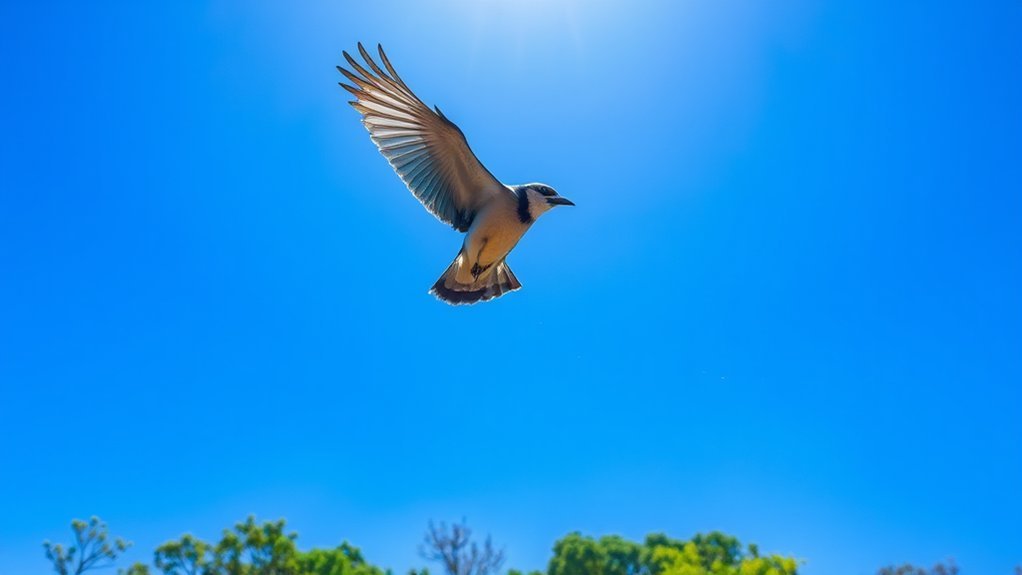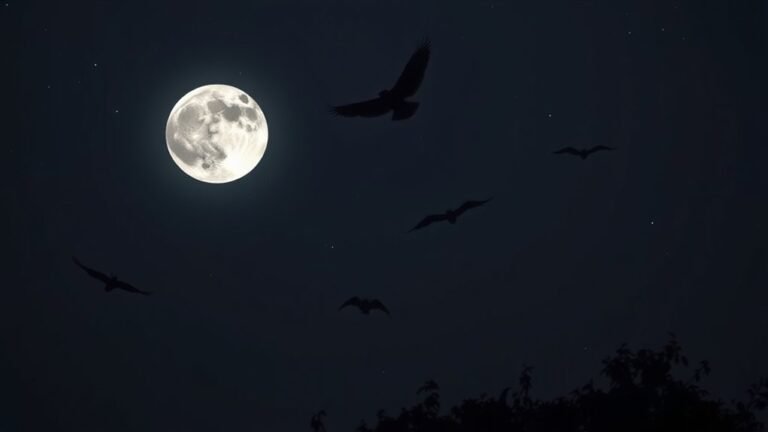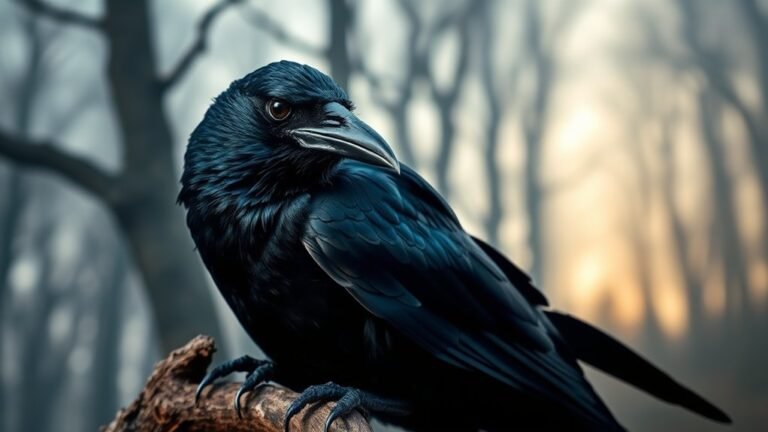Do Birds Poop While Flying? The Science Behind Avian Hygiene
Do birds poop while flying? This question invites curiosity about how birds manage waste in the air. Birds have a special body part called the cloaca. This allows them to excrete waste quickly and efficiently. Getting rid of waste helps them avoid extra weight, which is important for flying.
Birds typically time their droppings to avoid any flight disruption. They can drop waste at any moment, making it a continuous process while they are in flight. Understanding this behavior provides insight into how birds maintain their health and hygiene.
Bird poop also plays a role in nature. It provides nutrients to plants and helps with soil health. Overall, birds have adapted well to their flying lifestyle, and their waste management is a fascinating aspect of their biology.
Key Takeaways
Birds can poop while flying. This is a natural function for their bodies. The cloaca allows them to release both feces and uric acid at the same time. Birds often time their waste elimination based on social interactions and environmental conditions while in the air. Efficient waste production helps them stay light and maintain good flight performance. Regularly releasing waste in flight also supports ecological nutrient cycling, which is beneficial for the environment.
Understanding Bird Anatomy and Physiology
Birds have unique body structures that help them fly, breathe, and reproduce. Their feathers play an important role in these abilities. Feathers provide warmth, keep them dry, and help them soar through the air. Each feather has a central shaft and barbs that connect, creating a smooth surface that enhances their flight.
Birds breathe differently from many other animals. They've air sacs that keep air moving through their lungs. This design allows for constant airflow, which helps them take in the oxygen they need to stay active.
Learning about these features shows how birds adapted to their environments and highlights the fascinating aspects of their biology.
The Role of the Cloaca in Waste Excretion
Birds use a special structure called the cloaca for waste excretion and reproduction. This structure acts as a single exit point for both feces and uric acid.
When birds need to relieve themselves, muscles push waste through the cloaca. This process helps conserve water, which is crucial for birds, especially during flight.
As you see birds flying, consider their efficient waste management. It plays a role in keeping their environment clean and maintaining ecological balance.
Learning about the cloaca enhances your understanding of birds and their unique adaptations to different habitats.
How Flight Affects Digestion and Waste Processing
Birds have a specialized digestive system that helps them use energy efficiently and manage waste effectively for flight. Their digestion occurs faster than in many land animals because they need quick energy access for flying.
Birds have shorter gastrointestinal tracts that speed up nutrient absorption, providing energy rapidly. This fast digestion also reduces waste build-up, which is crucial for keeping them lightweight and aerodynamically efficient.
Birds also possess unique adaptations for processing waste. The cloaca serves for excretion and helps control waste output effectively.
This feature allows birds to streamline their waste management. By optimizing both digestion speed and waste output, birds maintain an essential balance for thriving in the air.
Timing of Elimination: Do Birds Wait to Poop?
Birds have interesting ways of timing their poop. They often choose specific moments to eliminate waste, influenced by their social habits. For example, birds may wait to poop until they're perched together in flocks.
This behavior helps them stay safe from predators. By coordinating when they eliminate, they strengthen their social bonds and manage waste more efficiently.
Factors in their environment also affect their timing. Birds consider the availability of safe perches and secure areas when deciding when to go.
Understanding these patterns gives us a better insight into bird behavior and shows how social and environmental influences shape their lives.
Flight Adaptations: Lighter Bodies and Efficient Waste Management
Birds have developed unique adaptations for flight. They've lighter bodies, which help them fly more efficiently. By reducing their body weight, birds can glide easily and travel longer distances. Their bones are hollow, which decreases weight without sacrificing strength. This design promotes better aerodynamics.
Birds also manage waste effectively. They've a cloaca, which serves as a single opening for excretion and reproduction. This system allows them to eliminate waste without adding extra weight. It helps keep their body streamlined and supports prolonged flight.
These adaptations show how birds balance their physical structure and function. This balance is crucial for their survival and ability to move through the air.
Observations of Bird Behavior During Flight
Birds display various behaviors while flying that help them move efficiently and interact socially. They often perform specific flight maneuvers that allow them to handle air currents and save energy. These maneuvers can differ among species, as they adapt to their surroundings.
Additionally, birds have strategies for waste management during flight. They often time their defecation to avoid affecting their flight and to maintain aerodynamic performance. This behavior also plays a role in flock dynamics, as the timing and place of waste release can influence how birds interact with one another.
The Impact of Diet on Waste Production
Birds' diets directly influence their waste production. Different types of food lead to distinct waste characteristics. For example, birds that eat fruit often produce moist, nutrient-rich droppings because of the high water content in their diet.
In contrast, birds that feed on insects typically have drier waste, which reflects their protein-rich meals. These differences impact both their bodily functions and how they fly.
Environmental Considerations: Where Do Birds Poop?
When examining the impact of bird waste on the environment, it's essential to identify the places where birds commonly defecate.
Birds tend to roost in high spots like trees, buildings, and utility poles. In cities, this behavior affects where bird droppings collect, often dirtying public spaces and structures.
You can observe bird waste on parks, sidewalks, and car roofs. This pattern of defecation can help nutrient cycling, benefiting soil, but it can also create problems like messy conditions and potential damage.
Understanding these habits assists in appreciating how bird behavior interacts with urban life, highlighting our role in caring for both wildlife and community areas.
Pooping Patterns Among Different Bird Species
Different bird species influence their environments through their pooping patterns. The frequency of droppings varies by species and is connected to their feeding habits and how long they fly. Larger birds tend to poop less often because they can store waste more efficiently. In contrast, smaller birds may poop more frequently due to their faster metabolism.
Juvenile birds show less control over their waste, affecting their pooping patterns. Migratory birds also change their pooping behavior during nesting periods. They often mark their territories to keep their nests clean.
Social interactions within flocks can further alter when and where they relieve themselves. Overall, these behaviors impact the environment in various ways, highlighting the ecological role of different bird species.
Understanding these patterns helps us appreciate the relationships between birds and their habitats.
The Significance of Poop for Ecosystems and Bird Health
Bird droppings are important for ecosystem health and bird well-being. Feces return nutrients to the soil and help plants grow. This growth supports ecological balance.
When birds interact with their environment, their waste aids in breaking down organic matter and enriching the soil. Healthy soil sustains diverse species, including those that depend on plants for food and shelter.
Additionally, bird droppings promote interactions among animals, enhancing the ecosystem and creating connections between different life forms. Recognizing the role of bird droppings helps us appreciate birds' contributions to nature and underscores the need for protecting our environment.
Frequently Asked Questions
Do All Bird Species Poop While Flying?
Not all birds poop while flying. Some birds choose to relieve themselves in the air, while others wait until they land. Their choice depends on their size, diet, and specific needs related to their environment.
Can a Bird's Diet Affect Its Poop Color?
Yes, a bird's diet affects its poop color. The types of food a bird eats can change the color of its droppings. For example, pigments in berries or seeds can alter the hue of the poop. This shows a clear link between what a bird eats and the color of its excrement.
How Often Do Birds Need to Poop?
Birds typically poop every 20 to 30 minutes. This frequency can depend on various factors, including their diet and digestion. Birds have a fast digestion process that enables quick nutrient absorption. This efficiency leads to regular elimination, which is important for their health and cleanliness. A healthy bird will maintain this consistent bathroom routine, contributing to its overall well-being.
Do Baby Birds Poop While Being Fed?
Baby birds poop while being fed. Their digestive systems start working to process food quickly. As they receive nourishment, they often excrete waste. This shows how efficiently baby birds digest the nutrients they consume.
Can Flying Birds Poop on People or Objects Below?
Yes, flying birds can poop on people or objects below them. This happens when they release droppings while in the air. This natural process can lead to unexpected messes for anyone underneath. It's a simple fact of life that flying birds sometimes create a mess.

Ava is a bird enthusiast and nature lover who has spent countless hours observing and learning about the fascinating world of birds. With a passion for sharing her knowledge and inspiring others to appreciate the beauty of birds, Ava writes about her experiences and insights on avianadmirer.com.







